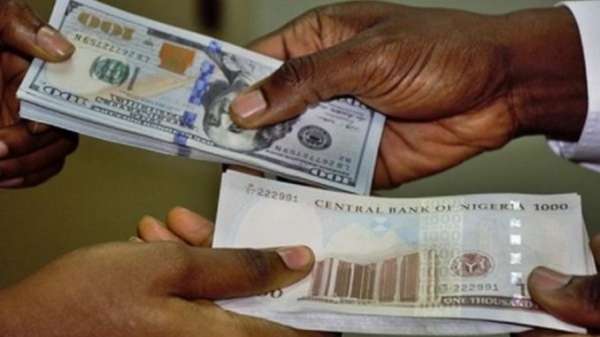One month after the Central Bank of Nigeria (CBN) announced the discontinuation of foreign exchange allocation to Bureau De Change firms, experts express divergent views on implications of the policy on businesses and livelihood.
The CBN Governor, Godwin Emefiele, had banned the sales of foreign exchange to Bureau De Change (BDC) operators in the country.
Emefiele while announcing the ban said there was evidence of prevailing ownership of several BDCs by the same promoters to procure multiple FX from the central bank.
Read Also: Experts hail CBN’s decision to stop forex sale to BDC operators
Visits to some of the parallel markets in Abuja, Kano, and Lagos revealed a bleak atmosphere as traders loiter about due to the drop in the volume of transactions in the markets, Daily Trust reports.
The president of the Association of Bureau De Change Operators of Nigeria (ABCON), Aminu Gwadabe told Daily Trust that the decision to discontinue forex sales to BDC operators, by the CBN, has led to the loss of over 40, 000 jobs in the economy.
The CBN decided to discontinue the supply of foreign exchange to Bureau De Change operators (BDCs) in its attempt to clamp down on illegal activities allegedly being perpetrated by some BDC operators.
Speaking to Daily Trust, in a post mortem of the CBN action, Gwadabe said: “The impacts of the CBN action include direct job losses of about 40,000 employees and over N200b capital to go toxic.”
Listing further implications of the policy, Gwadabe said the decision paved the way for “Dominance of un-official online and ‘Hawala’ activities. The dearth of BDCs expertise developed over the years, increased volatility and confidence crises of the naira, security concerns, and an increase in prices of goods and services.
“In all the BDCs remained the potent tool for CBN exchange rate stability instruments and accessibility.”
Professor of Development Economics and Public Finance, Nazifi Abdullahi Darma said when there is a major policy, especially such as the halt in forex supply to Bureau de Change operators, there would be job losses.
Professor Darma said the reality of Nigeria’s economy is that the supply of US dollars to Bureau de Change operators, who are private operators, by the government depleting its reserve on a continuous basis is unsustainable and unrealistic.
“The ideal thing is for the operators to source for their foreign exchange or their dollar requirements from autonomous operators, who are mostly exporters, and then send to end-users based on subsistence guidelines. As far as I am concerned, the policy of stopping selling the dollars to the Bureau de Change operators is the right policy because it will spur the operators into action to source for foreign exchange from autonomous sources,” he said.
The expert said the policy would narrow the gap between the official rate and the black market rate over time.
A past president of the Chartered Institute of Bankers of Nigeria (CIBN), Mr Okechukwu Unegbu, advised the apex bank to reconsider what he described as a “blanket ban” on BDCs.
Unegbu said that the ban would create some challenges in the market as commercial banks might not be able to meet the forex demands of importers.
“Not all the BDCs are bad, but as it is now, CBN has banned both the good and the bad.
“This punitive measure by the CBN can negatively affect the forex trading market. Most businessmen, when they cannot access forex from commercial banks, rush to the BDCs.
“Banks are not perfect, they also bend the rule sometimes, but that of the BDCs became so obvious due to their large numbers,” he said.
Dr Ifeoluwa Ogunrinola, lecturer at Covenant University opined that the effect of the CBN ban is highly dependent on how the CBN handles the policy implementation.
“If CBN manages the situation well by weighing its policy might on banks to ensure FX is readily available and accessible without discrimination or rationing of any sort and at the agreed or market going rate, then, only short-term effects may suffice.
“In the short term, FX may become artificially scarce primarily due to political sabotage by BDC lords and others with a vested interest in the FX market. Over time, the effects should be moderated as public fears are allayed through compliance with the CBN directive.
“However, if CBN loses track of its policy powers over the banks, then, extreme scarcity will be experienced, as BDC operators will seek alternative sources of their FX and sell at cutthroat rates.
“This will automatically drum up domestic prices as FX scarcity and naira depreciation will erode the purchasing power of the naira.”

